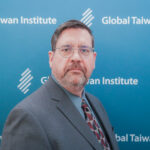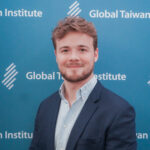Thursday, April 24, 2024 from 12:00PM – 2:00PM (EDT)
In-person and Webcast
Event Description:
The Global Taiwan Institute (GTI) is pleased to invite you to a seminar titled “Enhancing US-Taiwan Cooperation in Countering the CCP’s Ideological Work and Political Warfare.” This event is the culmination of a five-part series of GTI research reports on CCP political warfare in multiple dimensions: a framework and overall analysis of these activities; CCP ideology on Taiwan; gray zone operations; covert actions; and lawfare and economic coercion.
Military issues tend to dominate policy discussions surrounding security matters in US-Taiwan relations. Beijing’s military objectives, however, are driven by the nature of the Chinese Communist Party’s (CCP) political goals and its attendant program of subversive political warfare—factors all the more prominent since Xi Jinping came to power in 2012 and accelerated the CCP’s efforts to annex Taiwan. Observers of the Chinese political system have frequently underestimated the importance of ideology in PRC statecraft, but it is long past time to start taking more seriously the CCP’s pronouncements on ideology—and what this portends for strategic competition between China and the United States, as well as for CCP-directed political warfare against Taiwan and other democratic states. Analysis focused solely on military operations misses a fundamental element of the CCP’s overall strategy: its ideological work and political warfare, conducted through multiple branches of the party-state, and directed both at Taiwan and the international community. This discussion, which is based on a GTI research project examining CCP political warfare directed against Taiwan, aims to better illuminate and address the underlying ideological motivations of the CCP, as well as to develop a strategy to counter Beijing’s political warfare activities in multiple dimensions: gray zone operations, covert actions, lawfare, and economic coercion.
The event will be held at GTI’s office located at 1836 Jefferson Place NW in Washington DC (approximately one block from the Dupont Circle Metro). Doors will open at 11:30 AM, and the event will begin at 12:00 PM. Please direct questions or concerns to Program Manager Adrienne Wu at awu@globaltaiwan.org.
**Media: Please contact Adrienne Wu at awu@globaltaiwan.org if you would like to bring additional crew members or equipment, so that we can be sure to accommodate you.
The Keynote Speaker:
Mike Studeman is the former Commander of the Office of Naval Intelligence and a retired rear admiral. Currently a national security fellow at MITRE, he is an internationally recognized expert on Asian affairs, with deep expertise on China. Studeman has led intelligence operations at every level, from the tactical to the strategic, and in Navy, joint, national, and interagency assignments. He supported combat operations ranging from Desert Storm to the Balkans to Afghanistan. He also contributed to a range of counterterrorism, counter-narcotics, and counter-proliferation operations. Additionally, Studeman helped formulate strategies and execute operations to deal with challenges from Iran, North Korea, Russia, and China. Studeman’s senior joint assignments as a flag officer include three years as the Director of Intelligence (J2) for the nation’s largest combatant command, US Indo-Pacific Command. His first flag position was as Director of Intelligence (J2) for US Southern Command in Miami, Florida. Appointed by President Bush as a White House Fellow in 2005, Studeman went on to become the only officer ever to serve as Special Assistant to the Chief of Naval Operations, Vice Chief of Naval Operations, and US Fleet Forces Commander. He also held major command posts as a captain, including commanding the Joint Intelligence Operations Center for US Cyber Command.
The Panelists:
John Dotson is the deputy director at the Global Taiwan Institute. He has served previously as a US Navy officer, as a staff member of the US-China Economic and Security Review Commission, and as an editor of the Jamestown Foundation’s publication China Brief. John has performed extensive writing and research on a range of political and national security issues related to US policy in East Asia, to include Chinese propaganda and united front work, elite politics within the Chinese Communist Party, military-civil fusion efforts within the People’s Liberation Army, and Taiwan defense policy. He is a proficient Mandarin linguist, who has performed extensive original research in indigenous Chinese language sources. John holds an MA in National Security Studies (with “highest distinction”) from the US Naval War College, and a Master of International Public Policy from Johns Hopkins-SAIS.
Derek Grossman is a senior defense analyst at RAND focused on a range of national security policy and Indo-Pacific security issues. Previously, he served over a decade in the intelligence community, where he served as the daily intelligence briefer to the director of the Defense Intelligence Agency (DIA), and to the assistant secretary of defense for Asian & Pacific Security Affairs. Prior to DIA, Grossman served at the National Security Agency (NSA). He also worked at the CIA on the President’s Daily Brief staff. He has interviewed with BBC, Bloomberg, LA Times, CNN, Washington Post, NPR, CNBC, South China Morning Post, Australian Broadcasting Corporation, and many others. Grossman has also published dozens of commentaries and journal articles, including for Asia Policy, China Brief, ChinaFile, Defense Dossier, Foreign Policy, Global Taiwan Brief, International Security, Journal of International Security Affairs, Newsweek, PacNet, Strategic Studies Quarterly, Studies in Intelligence, The Diplomat, The Hill, The National Interest, War on the Rocks, and World Politics Review. Grossman is an adjunct professor at the University of Southern California and a regular contributor to The Diplomat. He holds an MA from Georgetown University in US national security policy and a BA from the University of Michigan in political science and Asian studies.
Peter Mattis is president of the Jamestown Foundation, a position he began in Fall 2023. He returned to the foundation after having served as editor of China Brief from 2011 to 2013 and as a fellow in the China program from 2013 to 2018. Most recently, Mattis was a senior fellow with the US House Select Committee on the Strategic Competition between the United States and the Chinese Communist Party on loan from the Special Competitive Studies Project where he served as Director for Intelligence. From 2019 to 2021, he served as the Senate-appointed staff director of the Congressional-Executive Commission on China (CECC) where he was a part of the legislative team that passed the Hong Kong Human Rights and Democracy Act, Uyghur Human Rights Policy Act, Tibetan Policy and Support Act, and the Uyghur Forced Labor Prevention Act. He began his government career as a counterintelligence analyst at the Central Intelligence Agency, where he earned exceptional performance awards for analytic leadership and community support. Mattis has written and spoken widely about the Chinese Government and Communist Party’s politics, foreign policy, internal security, intelligence, and political influence activities—including testimony before the House Foreign Affairs Committee, House Select Committee on Intelligence, US-China Economic and Security Review Commission, and the European Parliament. Mattis’ writing and commentary have appeared in Foreign Affairs, Foreign Policy, The Diplomat, Sydney Morning Herald, Studies in Intelligence, International Journal of Intelligence and Counterintelligence, War on the Rocks, and The National Interest. He also has been quoted in major media outlets including the New York Times, Wall Street Journal, Financial Times, Washington Post, The Economist, BBC, The Guardian, and Süddeutsche Zeitung.Mattis is the author of Analyzing the Chinese Military: A Review Essay and Resource Guide on the People’s Liberation Army (2015) and co-author of Chinese Communist Espionage: An Intelligence Primer (2019)—both of which he wrote while a Jamestown fellow. He is a graduate of the University of Washington and Georgetown University.
Benjamin Sando is a research fellow at the Global Taiwan Institute, where he investigates PRC united front influence operations and hosts the GTI Insights podcast. He previously worked at the Doublethink Lab NGO in Taipei, Taiwan, studying PRC united front strategy for the China Index project. Sando holds an MA in Asian Studies from the Georgetown University School of Foreign Service. He completed his BA at Stanford University, where he majored in International Relations and minored in Mechanical Engineering. Sando has lived in Seoul, South Korea, as a researcher at the ROK National Assembly Research Service and the Yonsei University Institute for Sinology. Fluent in Mandarin and Korean, his writing has been published by the Global Taiwan Brief, Council on Foreign Relations, East Asia Forum, The Diplomat, NK News, and others.
The Moderator:
Russell Hsiao is the executive director of GTI, senior fellow at The Jamestown Foundation, and adjunct fellow at Pacific Forum. He is a former Penn Kemble fellow at the National Endowment for Democracy and visiting scholar at the University of Tokyo’s Institute for Advanced Studies on Asia. He previously served as a senior research fellow at The Project 2049 Institute and national security fellow at the Foundation for Defense of Democracies. Prior to those positions he was the editor of China Brief at The Jamestown Foundation from October 2007 to July 2011 and a special associate in the International Cooperation Department at the Taiwan Foundation for Democracy. While in law school, he clerked within the Office of the Chairman at the Federal Communications Commission and the Interagency Trade Enforcement Center at the Office of the US Trade Representative. Hsiao received his JD and certificate from the Law and Technology Institute at the Catholic University of America’s Columbus School of Law where he served as the editor-in-chief of the Catholic University’s Journal of Law and Technology. He received a BA in international studies from the American University’s School of International Service and the University Honors Program.
The Reports:
1. The Chinese Communist Party’s Political Warfare Directed Against Taiwan: Overview and Analysis (Contributor: John Dotson)
2. The Chinese Communist Party’s Ideological Frameworks for Taiwan Policy (Contributor: John Dotson)
3. The Chinese Communist Party’s Gray Zone Tactics Against Taiwan (Contributor: Derek Grossman)
4. Chinese Communist Party Covert Operations Against Taiwan (Contributors: Peter Mattis and Cheryl Yu)
5. Chinese Communist Party Lawfare and Economic Coercion Against Taiwan (Contributors: Russell Hsiao and Benjamin Sando) (forthcoming)





